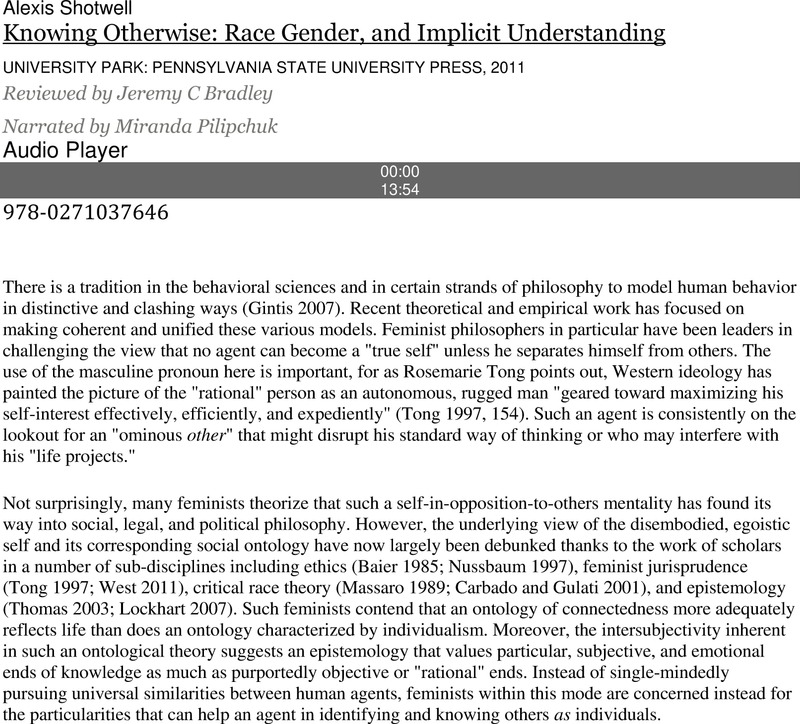Crossref Citations
This article has been cited by the following publications. This list is generated based on data provided by Crossref.
Thepsourinthone, Jack
Dune, Tinashe
Liamputtong, Pranee
and
Arora, Amit
2021.
Out of the Closet, Not Yet Out of the House: Gay Men’s Experiences of Homonegativity and Internalized Homonegativity.
Healthcare,
Vol. 9,
Issue. 11,
p.
1479.
Thepsourinthone, Jack
Dune, Tinashe
Liamputtong, Pranee
and
Arora, Amit
2022.
It’s a Man’s World: A Qualitative Study of Gender and Sexuality amongst Australian Gay Men.
International Journal of Environmental Research and Public Health,
Vol. 19,
Issue. 4,
p.
2092.





